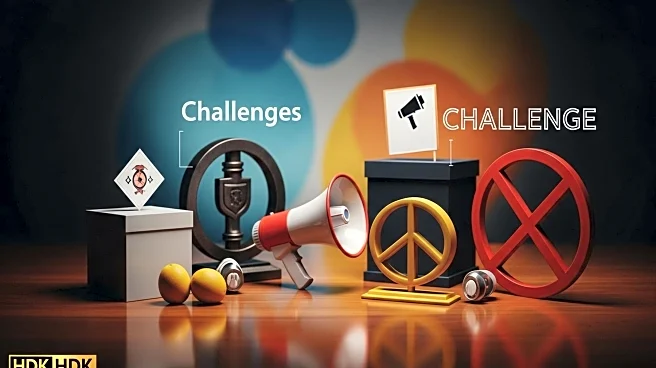What is the story about?
What's Happening?
The article discusses the importance of civic engagement and belonging in the face of rising authoritarian movements. It highlights the historical struggle in the United States over who is included in the civic 'we,' noting that the Declaration of Independence initially excluded many groups. The narrative emphasizes the need for institutions and communities to stand firm against forces that seek to shrink democratic practices and scapegoat vulnerable populations. The author, john a. powell, director of the Othering & Belonging Institute at UC Berkeley, argues that belonging should be unconditional and that bridging divides is essential for a healthy civic life.
Why It's Important?
The rise of authoritarian movements poses a significant threat to democratic values and practices in the United States. These movements often target vulnerable groups, using fear and division to consolidate power. The article underscores the importance of expanding the circle of belonging to include all individuals, regardless of their background. This approach not only strengthens democratic institutions but also fosters a more inclusive society. Civic engagement rooted in belonging can counteract the divisive tactics of authoritarianism, ensuring that all voices are heard and valued.
What's Next?
Institutions and communities are encouraged to practice bridging and unconditional belonging to counteract authoritarian threats. This involves engaging in dialogues across political, racial, and geographic divides to foster understanding and respect. Civic organizations are urged to take bold actions, risking short-term losses to uphold their values and missions. The article calls for increased collaboration among universities, foundations, and nonprofits to support these efforts and defend democratic practices.
Beyond the Headlines
The article explores the ethical and cultural dimensions of belonging, emphasizing that it is not conditional or transactional. It advocates for transforming societal structures to allow full participation and thriving for all individuals. Bridging divides is presented as a practice that can hold conflicts without dehumanizing others, promoting a society where differences are opportunities for connection rather than grounds for exclusion.















